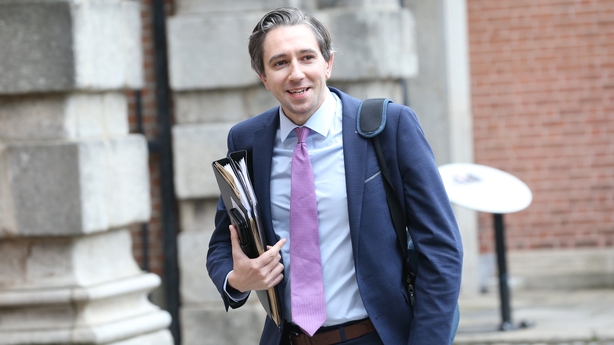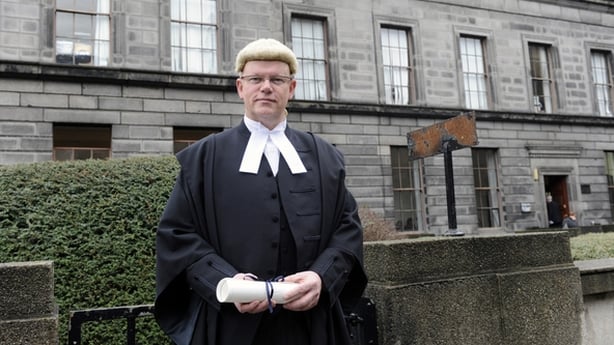The judiciary has welcomed the announcement by the Government that it is to appoint new judges as soon as possible.
Minister for Justice Simon Harris said 24 judges would be appointed this year.
Another 20 are to be appointed in the next phase, likely next year, but their appointments will depend on the implementation of reforms, including better data collection, as well as longer sitting hours and shorter vacations.
The decision follows calls by senior members of the judiciary for more judges to be appointed and the publication of a report by a working group set up to establish how many were needed.
Speaking at a conference on civil legal aid this morning, Minister Harris said the report by the Judicial Planning Working group had highlighted "an acute need for additional judges".
The 24 new appointments are recommended for the first phase, which the minister said had been approved by Government.
This will mean eight extra judges in the district court and in the circuit court, as well as six additional judges in the High Court and two in the Court of Appeal.
A total of 20 additional judges will follow in Phase 2, probably in 2024, the minister said.

However, phase two will be dependent on an assessment of the impact of the first phase as well as "measurable progress" on a range of reforms.
Among the reforms recommended by the working group are more efficient collection of data, additional powers for the presidents of the courts, as well as increased sittings for district courts outside Dublin and longer days and shorter vacations for all courts.
The minister said the new judges would support the establishment of a dedicated Planning and Environmental Court, as well as new family law courts and would help clear backlogs, which got worse during the pandemic.
Statistics published last year by the European Commission for the Efficiency of Justice, found that Ireland has the lowest number of judges per head of population. It found Ireland had 3.27 judges per 100,000 people in 2020, below the European average of 17.6 judges.
The initial appointment of 24 judges will bring the number of judges in Ireland from 173 to 194.
Minister Harris said the cost of appointing the extra 24 judges would be €15 to €18 million per year, including provision for support staff.
He said the figures of 24 judges in phase one and 20 in phase two were not plucked from the sky and he said he was not sure anyone could point to these numbers as showing anything other than a very ambitious plan.

In a joint statement issued by the Chief Justice, along with the presidents of the Court of Appeal, the High Court, the Circuit court and the District Court, the judges welcomed the publication of the report.
They said there was now an evidence-based assessment of the extent to which judicial numbers had fallen short of what was necessary to ensure timely access to justice for people.
Chief Justice Donal O'Donnell said the Government's immediate acceptance of the report and its plan to create additional positions was a real and tangible recognition of the fact that a functioning justice system was not a luxury, but a critical component of a modern liberal democratic society, founded on the rule of law.
The Supreme Court, which focuses mainly on constitutional cases, has seen a reduced workload since the establishment of the Court of Appeal in 2014 and will not get any new members.
Today’s conference takes place in the context of an ongoing review of the civil legal aid scheme, chaired by the former Chief Justice, Frank Clarke.
It will look at the international experience and what a new system of legal aid for civil cases might look like for this country to ensure better access to justice.






